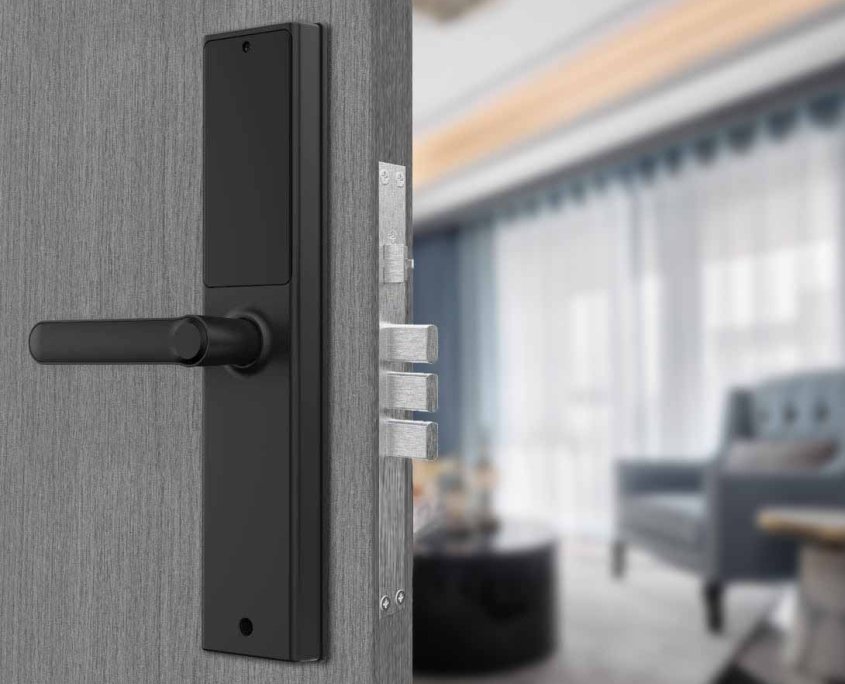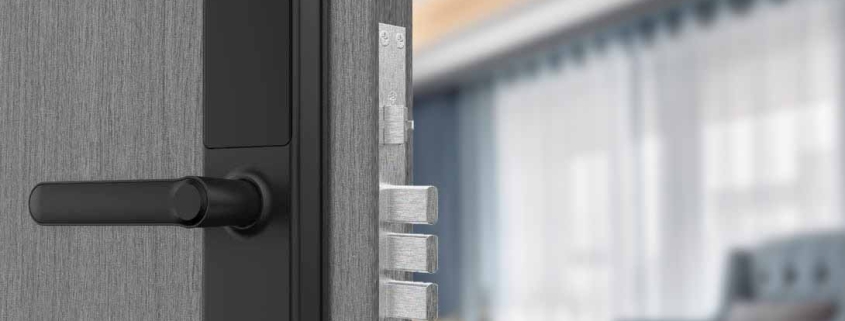Are Digital Locks Worth It?
Digital locks—keyless, high-tech, and undeniably convenient—are popping up on homes across America. But with prices ranging from 100to400+, you might wonder:
Are digital locks actually worth the cost?
Do they provide better security, or are they just a fancy gadget?
What are the hidden downsides?
In this guide, we’ll break down the pros, cons, and real-world performance of digital locks, helping you decide if they’re a smart investment or an unnecessary splurge.
1. What Is a Digital Door Lock?
A digital door lock replaces traditional keys with:
-
PIN codes (keypad locks)
-
Smartphone access (Bluetooth/Wi-Fi)
-
Fingerprint or RFID cards (biometric/scanner locks)
Types of Digital Locks:
| Type | How It Works | Avg. Cost | Best For |
|---|---|---|---|
| Keypad Locks | Enter a code to unlock | 80–200 | Rentals, elderly family |
| Smart Locks (Wi-Fi/Bluetooth) | Unlock via app, voice, or auto-detection | 150–400 | Tech-savvy homeowners |
| RFID/Fob Locks | Tap a card or fob to enter | 100–300 | Businesses, Airbnb hosts |
| Fingerprint Locks | Scan your fingerprint | 200–500 | High-security needs |
2. The Benefits: Why Americans Love Digital Locks
No More Lost Keys
-
Forget fumbling for keys—just tap a code, use your phone, or scan your fingerprint.
-
Ideal for kids, elderly parents, or frequent travelers.
Enhanced Security (If Installed Correctly)
-
No pickable locks—digital locks are harder to pick than traditional deadbolts.
-
Temporary access for guests (no risky key copies).
-
Activity logs (see who entered and when).
Smart Home Integration
-
Works with Alexa, Google Home, and Apple HomeKit.
-
Auto-lock/unlock when you arrive/leave.
-
Remote access (let in a dog walker from your phone).
Great for Rentals & Airbnb
-
No rekeying between tenants—just change the code.
-
No physical keys to lose or duplicate.
3. The Downsides: Potential Drawbacks
Higher Upfront Cost
-
A good digital lock costs 200–400, vs. 30–80 for a traditional deadbolt.
Battery Dependence
-
Most run on AA or lithium batteries (last 6–12 months).
-
If batteries die, you may get locked out (unless there’s a backup key).
Hacking & Tech Vulnerabilities
-
Cheap digital locks can be hacked via Bluetooth/Wi-Fi.
-
Shoulder surfing (someone spying on your PIN code).
Installation Hassles
-
Some require door modifications (not all fit standard doors).
-
Wi-Fi locks need a strong signal near the door.
4. Are Digital Locks More Secure Than Traditional Keys?
Security Pros:
No physical key copies floating around.
Auto-locking prevents accidental unlocked doors.
Tamper alerts on smart locks (if someone tries to break in).
Security Cons:
Tech-savvy thieves can exploit weak encryption.
Power outages may affect some models.
Fingerprint errors (wet/dirty fingers can fail).
5. When Is a Digital Lock Worth It?
YES, If You…
-
Hate carrying keys (or lose them often).
-
Want smart home automation (voice control, remote access).
-
Rent out your home (easy guest access management).
-
Need accessibility (great for seniors/disabled family).
NO, If You…
-
Prefer low-tech solutions (and don’t mind keys).
-
Live in extreme weather (some locks fail in cold/heat).
-
Want the cheapest option (traditional locks cost less).

6. Final Verdict: Are Digital Locks Worth It?
Worth It For:
-
Tech lovers who want smart home integration.
-
Families who need keyless convenience.
-
Landlords managing multiple properties.
Not Worth It For:
-
Those on a tight budget (stick with traditional locks).
-
People in extreme climates (batteries may fail).
-
Anyone uncomfortable with tech setups.
Pro Tip:
If you’re unsure, start with a mid-range keypad lock before investing in a full smart lock.
Bottom Line
Digital locks aren’t perfect, but they offer game-changing convenience and improved security for many homeowners. If you’re tired of lost keys and want modern access control, they’re absolutely worth considering.
Have you switched to a digital lock? Share your experience below!









